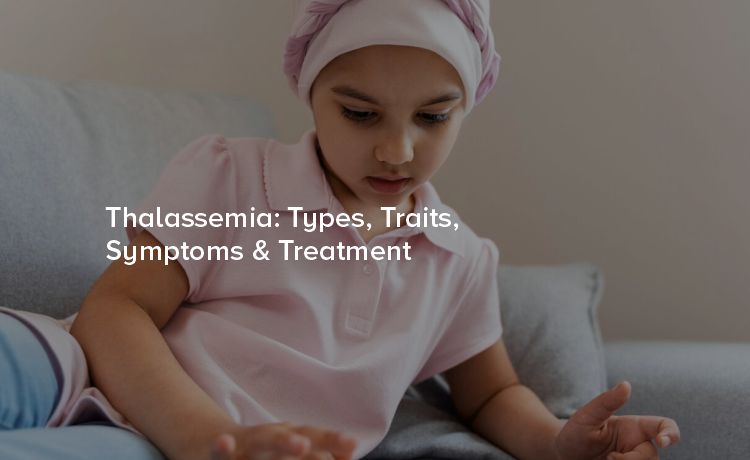
Thalassemia is a genetic blood disorder that affects the body's ability to produce hemoglobin, leading to anemia. It's a condition that can significantly impact one's quality of life, yet with proper management and treatment, individuals with thalassemia can lead fulfilling lives.
Thalassemia is inherited, meaning it's passed down from parents to their children through genes. It primarily affects the production of hemoglobin, the protein in red blood cells responsible for carrying oxygen throughout the body. When hemoglobin production is disrupted, it leads to a shortage of red blood cells and anemia, the main characteristic of thalassemia.
Thalassemia is classified into two main types based on which part of the hemoglobin molecule is affected:
Alpha thalassemia occurs when the gene that controls the production of the alpha globin chain of hemoglobin is missing or mutated. The severity of alpha thalassemia depends on how many of the four genes are affected. It ranges from silent carriers, with no apparent symptoms, to Hemoglobin H disease, which can cause more severe health issues, including chronic anemia.
Beta thalassemia results from mutations in the gene controlling the production of the beta globin chain of hemoglobin. There are three main forms of beta thalassemia, categorized by severity: thalassemia minor (or trait), thalassemia intermedia, and thalassemia major (also known as Cooley’s anemia). Thalassemia major is the most severe form and requires regular blood transfusions for the individual to survive.
People with thalassemia traits, also known as thalassemia carriers, usually do not exhibit any symptoms. However, they can pass the gene to their offspring, who may develop the disease. For those with the disease, symptoms can vary widely depending on the type and severity but commonly include:
In severe cases, thalassemia can cause more serious complications such as heart problems, infection risks, and bone deformities.
Diagnosis of thalassemia involves blood tests that check for anemia and analyze hemoglobin variants. A complete blood count (CBC) test measures the amount of hemoglobin and the number of red blood cells. Genetic testing may also be recommended to identify mutations in the alpha or beta globin genes, especially if there's a family history of thalassemia.
Treatment for thalassemia depends on the type and severity of the condition:
Regular blood transfusions are often necessary for those with thalassemia major, supplying the patient with healthy red blood cells containing normal hemoglobin.
Since repeated blood transfusions can lead to iron overload, iron chelation therapy is used to remove excess iron from the body, preventing damage to vital organs.
Supplementing with folic acid can help promote the production of new red blood cells, beneficial for all types of thalassemia.
A bone marrow or stem cell transplant may offer a cure for some patients, especially young individuals with severe thalassemia. However, this procedure carries significant risks and requires a compatible donor.
Emerging treatments, such as gene therapy, show promise in treating or even curing thalassemia. This approach involves inserting normal genes into a patient's bone marrow to promote the production of healthy hemoglobin.
Managing thalassemia is a lifelong commitment that can involve regular medical treatment, monitoring, and lifestyle adjustments. However, with advances in medical science, people with thalassemia are living longer, healthier lives than ever before. Education, early diagnosis, and comprehensive care are critical in improving outcomes for those affected by this condition.
Thalassemia is a complex condition with a wide range of manifestations, from being a silent carrier to requiring lifelong, intensive treatment. Understanding the types, traits, symptoms, and treatment options is crucial for those affected by thalassemia and their families. Citizens Specialty Hospital has the best hematologist in Hyderabad. Book an appointment now.